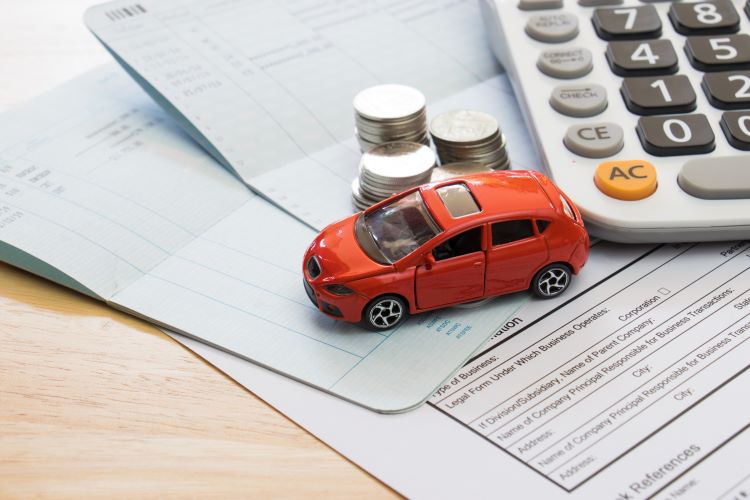Understanding Car Financing Options with Bad Credit in South Africa for 2025
Did you know that even with a poor credit score, various financing options exist to help you buy a car in South Africa? This article explores key insights on credit scores, financing methods, and practical steps to navigate car buying despite credit challenges.

Car financing allows you to purchase a vehicle by borrowing money from a lender and repaying it over time with interest. In South Africa, this typically involves a credit agreement where the lender retains ownership of the vehicle until the loan is fully repaid. Monthly instalments are calculated based on the purchase price, interest rate, loan term, and any deposit paid upfront. Understanding these basics helps you make informed decisions when shopping for vehicle finance.
What is Car Finance and How Does It Work?
Car finance in South Africa operates through various lending institutions including banks, dealerships, and specialized finance companies. When you apply, the lender assesses your financial situation, employment status, and credit history to determine your eligibility and interest rate. The loan amount covers the vehicle purchase price minus any deposit. Repayment periods typically range from 24 to 72 months, with longer terms resulting in lower monthly payments but higher total interest costs. Most agreements include balloon payments or residual values, which reduce monthly instalments but require a lump sum at the end of the term. Interest rates vary significantly based on your creditworthiness, with prime lending rates serving as the baseline. Additional costs like initiation fees, monthly service charges, and insurance must also be factored into your budget.
How Does Your Credit Score Affect Car Finance?
Your credit score plays a crucial role in determining whether lenders approve your application and what interest rate they offer. In South Africa, credit bureaus like TransUnion, Experian, and Compuscan track your borrowing history, payment patterns, and outstanding debts. Scores typically range from 0 to 999, with higher numbers indicating better creditworthiness. A bad credit score—generally below 600—signals to lenders that you may pose a higher risk of defaulting on payments. This often results in higher interest rates, stricter terms, or outright rejection. However, lenders also consider other factors like stable employment, regular income, and existing debt-to-income ratios. Some specialized lenders focus specifically on applicants with impaired credit, though they typically charge premium rates to offset their risk. Understanding your credit profile before applying helps you set realistic expectations and identify areas for improvement.
Steps to Take Before Applying for Car Finance
Preparing thoroughly before submitting applications can significantly improve your chances of approval and better terms. Start by obtaining your credit report from all major bureaus to identify errors or outdated information that might be dragging down your score. Dispute inaccuracies promptly, as corrections can take several weeks. Next, calculate your affordability by reviewing your monthly income and expenses to determine a realistic instalment amount. Financial experts recommend keeping vehicle finance payments below 30 percent of your gross monthly income. Saving for a substantial deposit—ideally 10 to 20 percent of the vehicle price—demonstrates financial discipline and reduces the amount you need to borrow. Pay down existing debts where possible, especially high-interest accounts or those in arrears. Gather necessary documentation including recent payslips, bank statements, proof of residence, and identification. Consider getting pre-approved from multiple lenders to compare offers without committing immediately. Finally, research vehicle models within your budget, focusing on reliable options with good resale value and affordable maintenance costs.
Exploring Car Finance Options with Bad Credit
Several financing avenues exist for South Africans with bad credit, each with distinct advantages and considerations. Traditional banks typically offer the most competitive rates but maintain strict credit requirements, making approval difficult for those with impaired histories. Dealership finance through partnerships with lending institutions may be more flexible, though interest rates are often higher. Specialist bad credit lenders focus specifically on applicants with credit challenges, offering approval with less stringent requirements but charging significantly higher interest rates to compensate for risk. Rent-to-own schemes allow you to use a vehicle while making payments, with ownership transferring after the final instalment; however, these arrangements often involve premium pricing and strict terms. Private financing through peer-to-peer platforms or personal loans from individuals represents another option, though legal protections may be limited. Some employers offer vehicle financing schemes with payroll deductions, which can be advantageous due to lower default risk and potentially better rates. Credit unions and stokvels sometimes provide member financing at competitive terms. Each option requires careful evaluation of total costs, contract terms, and your ability to meet payment obligations consistently.
| Finance Provider | Typical Interest Rate | Key Features |
|---|---|---|
| Major Banks | 11-15% per annum | Strict requirements, competitive rates, comprehensive service |
| Dealership Finance | 15-22% per annum | Convenient application, moderate flexibility, vehicle-specific |
| Bad Credit Specialists | 20-28% per annum | Flexible approval, higher rates, shorter terms common |
| Rent-to-Own Providers | 25-35% effective rate | Immediate vehicle access, higher total cost, ownership transfer |
Prices, rates, or cost estimates mentioned in this article are based on the latest available information but may change over time. Independent research is advised before making financial decisions.
Protect Yourself from Risky Lenders
When seeking finance with bad credit, vigilance against predatory lending practices becomes essential. Legitimate lenders must be registered with the National Credit Regulator and comply with the National Credit Act, which caps interest rates and prohibits certain exploitative practices. Be wary of lenders requesting upfront fees before approval, as this often indicates a scam. Carefully review all contract terms, paying special attention to interest rates, fees, penalties for early settlement, and consequences of missed payments. Avoid agreements with balloon payments you cannot afford or terms that seem unclear or overly complex. Reputable lenders will provide clear documentation, allow time for consideration, and never pressure you into immediate decisions. Check online reviews and complaints lodged with regulatory bodies. Consider having a financial advisor or knowledgeable friend review contracts before signing. Remember that while bad credit limits options, legitimate alternatives exist that don’t involve excessive risk or exploitation. If an offer seems too good to be true or a lender exhibits aggressive tactics, walk away and continue your search elsewhere.
Securing vehicle finance with bad credit in South Africa requires patience, preparation, and careful comparison of available options. While challenges exist, understanding how the process works and taking proactive steps to improve your financial position can open doors to legitimate financing. Focus on affordability, transparency, and working with registered lenders who operate within legal frameworks. With diligent research and realistic expectations, reliable transportation remains achievable even when your credit history isn’t perfect.




